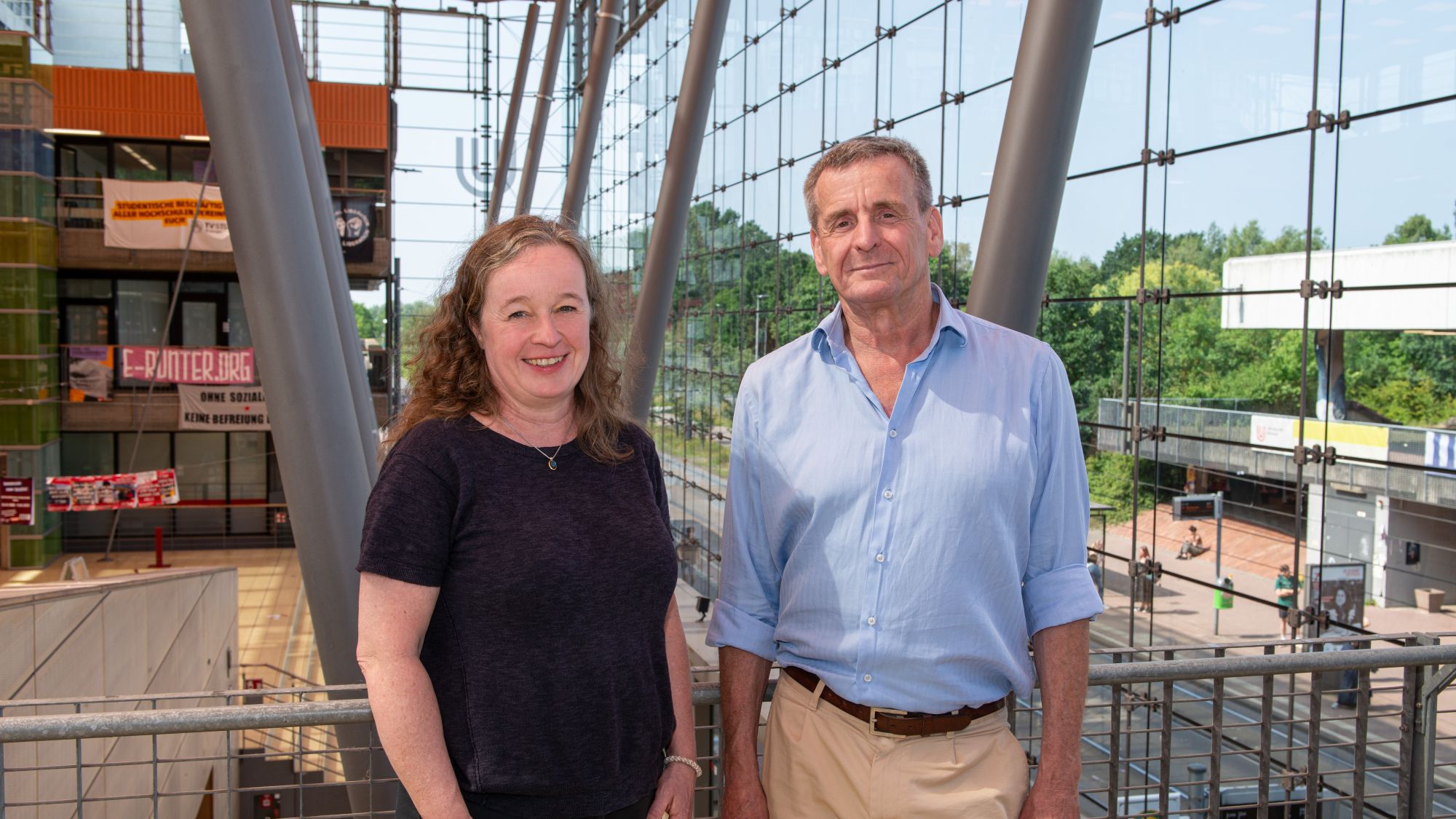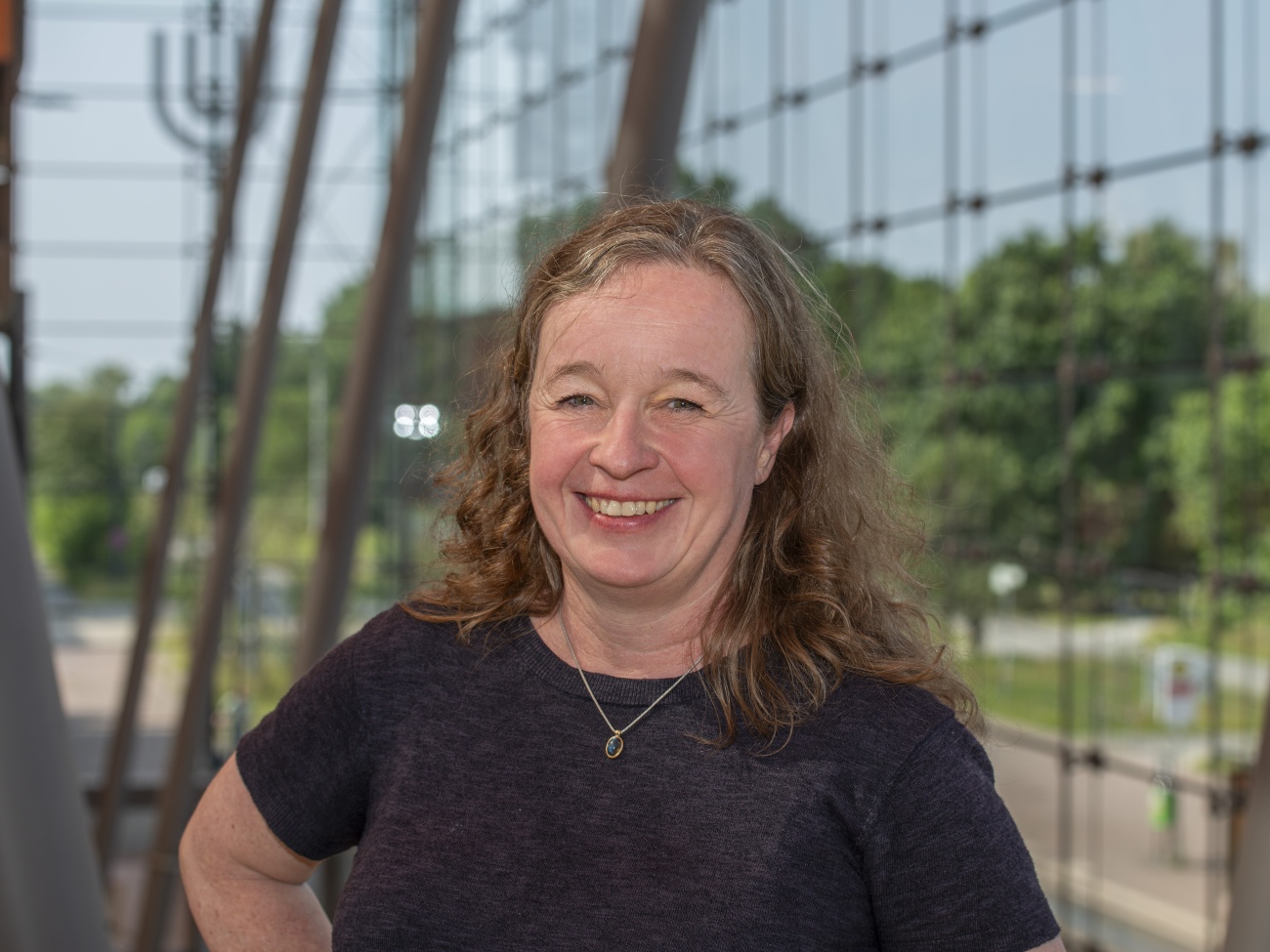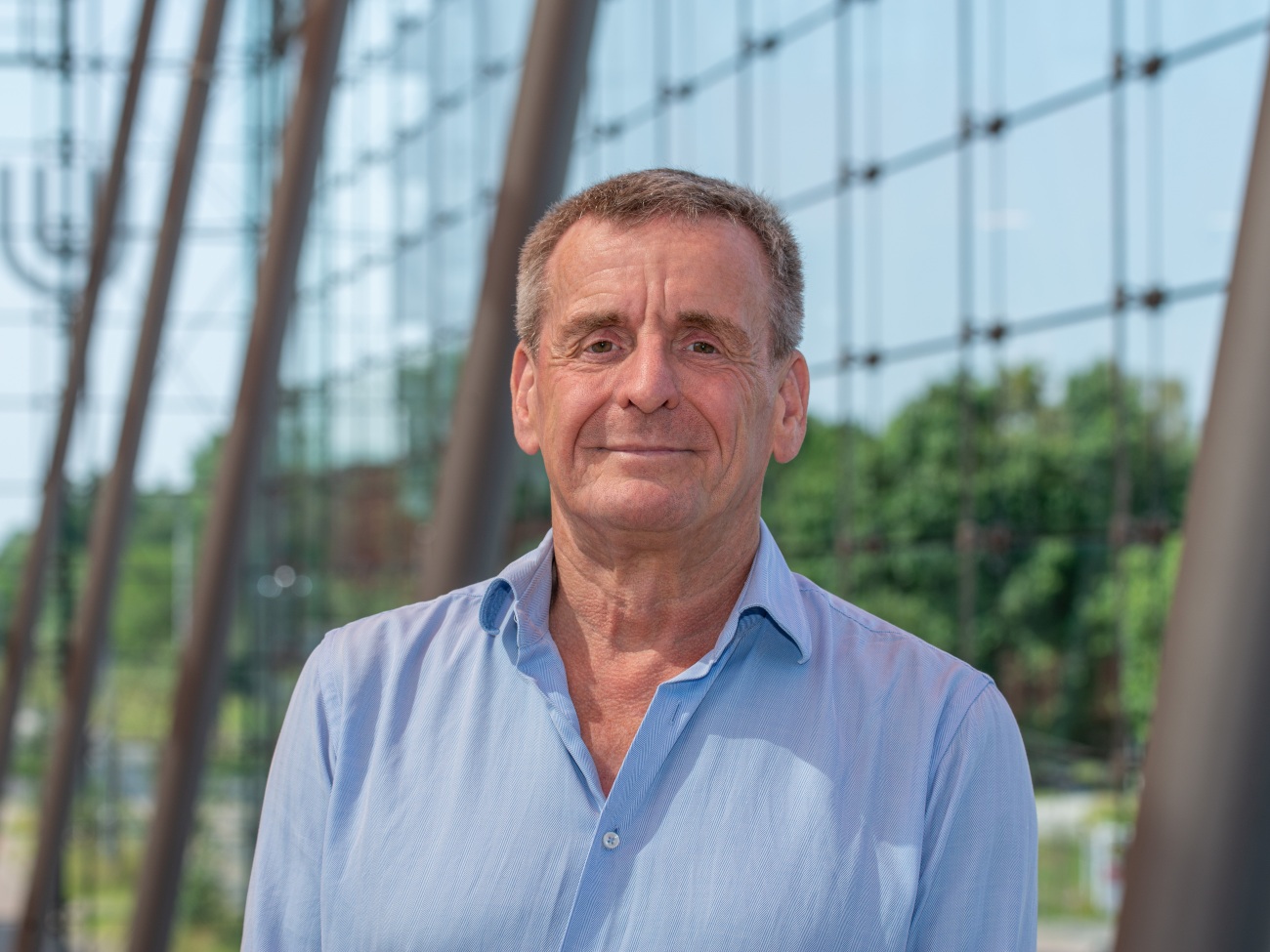
© Felix Clebowski / Universität Bremen
Mentoring and Motivating – Characteristics of Exceptional Doctoral Supervision
An interview with the recipients of this year’s Award for Outstanding Doctoral Supervision
In an interview with up2date., Professor Gesine Mollenhauer and Professor Klaus Schlichte told us about the elements they deem essential, potential challenges that may arise, as well as the guidance they hope to impart when supervising doctoral students.
First of all, congratulations on receiving the Award for Outstanding Doctoral Supervision this year, which signifies your commitment and dedication to supporting researchers in the early stage of their careers. What aspects are particularly important to you in doctoral supervision?
Gesine Mollenhauer: Since each person is individual and has different needs, there is no standard guideline for good supervision. However, there are some crucial basic elements. These include dedicated and professionally competent support; being invested in the project; personal components such as trust, respect, and reliability; and the willingness to help build up and be part of their academic network. Although supervision is always tailored to the individual situation, these elements are indispensable throughout.
Klaus Schlichte: True, there is no set of guidelines that applies across the board, as people are very different – some work independently, others need more guidance, and some require clearly stated tasks. It is important to adapt to individual needs. To ensure a successful collaboration, it is also important that supervisors are interested in the research topic and build an interpersonal relationship, since doctoral supervision represents a social connection that lasts several years.
What challenges accompany doctoral supervision and how do you address these?
Gesine Mollenhauer: One challenge is determining how much space a person needs. Some require a lot of freedom, whereas others need closer guidance. One goal is to make the project a positive challenge for everyone. Cultural barriers might lead to uncertainties, for example when international doctoral students are unsure how to respectfully address professors in Germany. Our informal approach is difficult for some at first. That is why I sometimes have to clearly state that I want to be addressed by my first name and not by “Professor.” Shared experiences, such as expeditions, promote trust while shifting the relationship, since they require everyone’s involvement and take place in a setting with fewer hierarchies.

© Felix Clebowski / Universität Bremen
Klaus Schlichte: Another challenge are doubts regarding an academic career in Germany, since lifelong research positions are more the exception than the rule nowadays. This is also a crucial stage for motivating doctoral students to develop skills of independence and to use the existing support structures during their career transition.
Gesine Mollenhauer: This is why my role as a supervisor also includes providing support in career planning during and after the doctoral degree. I share information and perspectives, assist in brainstorming ideas, and help in the search for research partners and opportunities at home and abroad. I also help with applications, give advice, and provide contacts within my network to determine possible career paths.
Of course, psychological stress is also a major challenge – and the COVID pandemic intensified this even further. Isolation and the lack of social gatherings meant that some were unable to complete their doctorate or experienced extreme delays. It is important to listen, to help with assessing problems, and to examine solutions – drawing from personal experience as well. Dealing with fears and doubts requires a professional attitude.
Who or what provided the inspiration during your doctoral degree that led to your current career?
Gesine Mollenhauer: Part of my doctoral degree was spent in the USA, and my local mentor there taught me a lot about collaboration and communication. He still serves as a role model for me to this day. These experiences and encounters left a lasting impression and also formed the basis of my current network.
Klaus Schlichte: I particularly appreciated the close integration of research and teaching during my doctoral degree in Hamburg as practiced there since the 1980s. This strengthened my resolve to stay in academia, and I am currently trying to re-establish this type of connected curriculum.

© Felix Clebowski / Universität Bremen
What advice would you give to doctoral candidates or students preparing for a doctoral degree?
Klaus Schlichte: Obtaining a doctoral degree opens up additional prospects. These are not just limited to academic pursuits, since doctoral researchers develop skills that are valuable assets in many additional professions.
Gesine Mollenhauer: It is important to have self-confidence, believe in one’s own abilities, and be curious. The attitude “I am able and want to achieve more – and have every right to do so” as well as a clear goal are the basis for starting this academic journey.
Can you summarize what you enjoy most about doctoral supervision?
Gesine Mollenhauer: The biggest reward is the joy of being part of the research process, successfully completing a project, and watching the story unfold together.
Klaus Schlichte: Discussions in our field are greatly enhanced by reading good, thought-provoking texts by doctoral students. We all profit and learn a great deal from interacting with doctoral students from abroad.
Further Information:
The University of Bremen presents the Award for Outstanding Doctoral Supervision every two years to honor the professional and committed supervision professors provide doctoral researchers. The jury presents the award to one person from humanities and social sciences and one from the natural sciences and engineering. The awards are endowed with a total of 4,000 euros donated by the University of Bremen’s Alumni Network, which serves exclusively to support doctoral candidates. You can find further information in the press release.